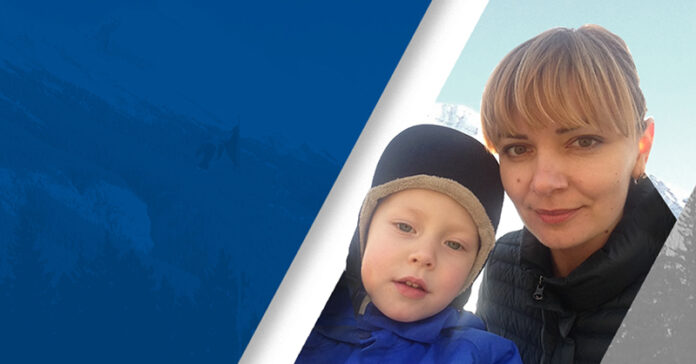With the ongoing war in Ukraine and the need to find placements for refugees, a new strategy is offering hope to displaced people escaping the fallout of world conflicts.
Mila Wagner is pictured with this story as someone who would have benefitted from this program when she came to Alberta in 2016 from Ukraine. As well, if she had found out that there was a way to fast track her training to be evaluated for provincial standards, she could have saved two years of additional study, say officials.
The Association of Science and Engineering Technology Professionals of Alberta or ASET is waiving the fees for accreditation. This will allow foreign-trained professionals who are unable to produce academic transcripts to do a work portfolio to show equivalency to the academic requirements. Skills and knowledge obtained outside of an academic program are evaluated to determine competence, and certification exams will test for the required educational standard, according to ASET.
Barry Cavanaugh CEO with ASET says several years ago they were concerned about foreign-trained professionals being bound up in provincial assessment procedures. He says it “was difficult for them to understand and translate their experience in their home countries.” He says their organization set about developing “an objective system that was state of the art” and allow assessment of every applicant’s credentials on a level playing field.
“So we created these competencies based assessment standards which we review constantly and a certification exam to assess their academics in the event that they have not been able to get a Canadian accredited education. We were very concerned to make certain that everybody was treated the same way.”
People displaced from war torn areas face challenges like getting transcripts from institutions that may have been destroyed by the conflict, note authorities.
The competencies based assessment program has been ongoing for about 10-years. Cavanaugh says the war in Ukraine has increased the need to fast-track applicants as the volume of people has increased.
“We had never encountered a situation where refugees were coming so quickly to the country or coming to us quickly. And I think we wanted to anticipate how to deal with it. In the past we had often had refugees who had applied but they had often been in the country for a couple of years by the time they did.”
He adds the present conflict indicated to their council that there was a greater and more immediate need and they acted out of “compassion” to waive the application and exam fees. He says in the past they have had applicants from even Syria but the Ukrainian situation has prompted a greater urgency.
“We’ve had Syrian refugee applicants but they hadn’t been that immediate. And all of a sudden, I guess we hadn’t had the same flood of media on the topic. But we realized we might be overlooking something here. Refugees need to be treated differently.”
In the case of Mila Wagner, Cavanaugh says she would have benefitted if she knew about the program but she went back to school.
ASET says in waiving most of its fees for engineering technology professionals who have refugee status, those fees can cost up to nearly $1,000 per member over time. Also, a completed application can take from 6 to 12 months on average, which is still less time than pursuing a two-year Canadian engineering technology diploma program.
More information for international applicants can be found online.
Details for people having difficulty to get transcripts are also on their website. Information as well on the Prior Learning Assessment & Recognition or PLAR in Alberta is on the government’s website.




